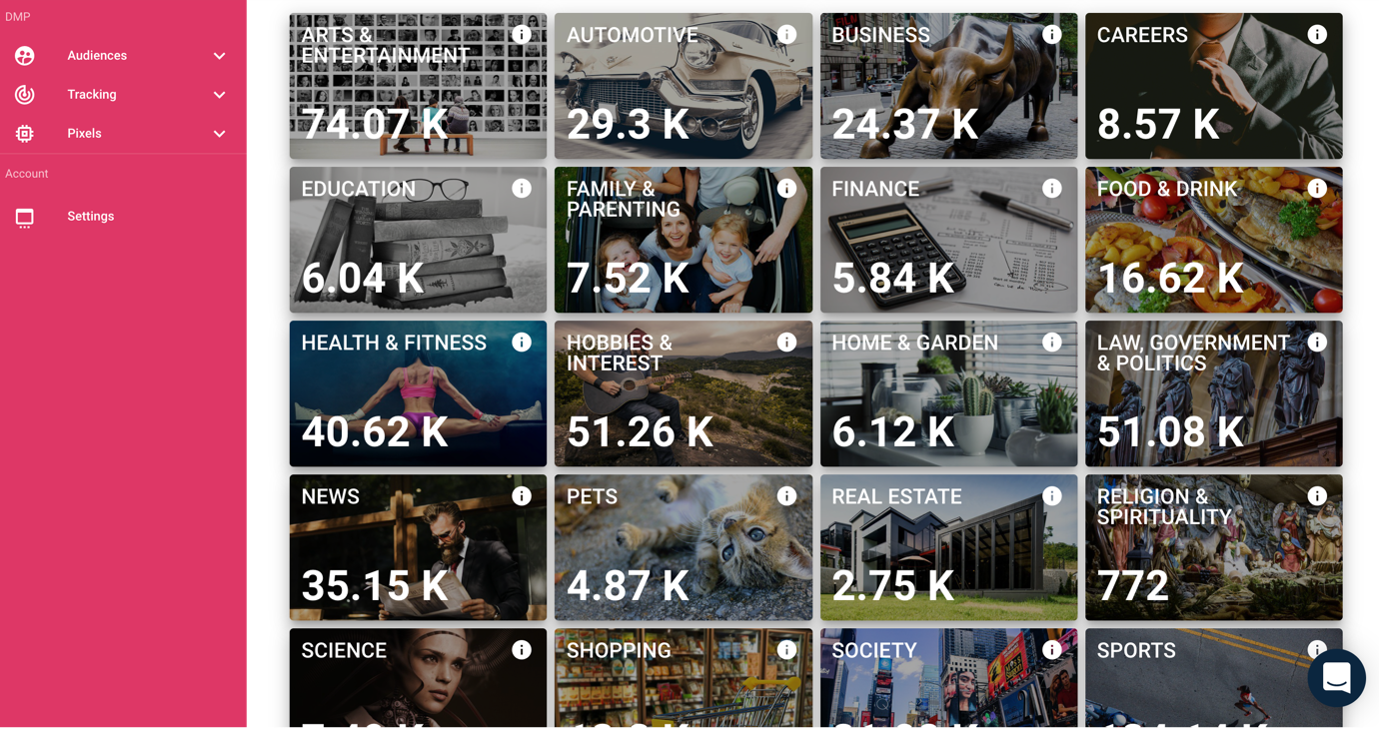Update, September 2024:
For years, the announced elimination of third-party cookies in the market dominating Chrome browser has been a concern for the digital economy. In July announced Google that they will not implement this step after all, but will instead develop a new technology that improve data protection for users.
The question that arises: Is the topic of first-party data still very relevant or is the industry leaning back and relying on third-party cookies again?
The IAB has discussed with industry experts and came to the conclusion that first-party data remains essential to reaching the customers of the future and developing effective strategies for the future of marketing.
Schliecker-Magnani of Meta even said that the decision by the Alphabet subsidiary has caused almost indifference even in the industry, as the models for data quality have evolved massively in the last four years and third-party cookies are no longer decisive.
You can find more opinions here:
- https://www.iab-austria.at/nachbericht-network-cookies-2024/
- https://medianet.at/news/marketing-and-media/zweischneidig-aber-kein-gamechanger-iab-austria-zur-cookie-entscheidung-von-google-62202.html
Conclusion of our update:
Although Google announced that they will not block third-party cookies after all, the industry continues to rely on first-party data and is now well positioned should Google change its mind again. 😉
How you can use Pinpoll to collect first-party data in a fun way, can be found in this article. We are looking forward to hearing from you.🙂
First article, July 2021
As recently Google announced to phase out third-party cookies from expected second half of 2024 many questions are arising for our customers. What are third-party cookies and how are they different from first-party cookies? How blocking of the third-party cookies by Google Chrome is going to affect Pinpoll customers and their users, both technically and legally? And, how Pinpoll is going to handle it?
Let us start with the explanation of the terms.
What is a cookie?
A cookie is a text filethat can be stored in the browser on the end device of the viewer (e.g. laptop, tablet, mobile phone) in each case to a visited website (web server, server) (Source: https://en.wikipedia.org/wiki/HTTP_cookie).
First-Party Cookies
First, we are not talking about cookies that someone offers you at the first party of your life. 😉
First-party cookies are created and set by the website that the user is currently visiting. The cookies are stored locally on the user's computer to provide a good user experience and helps the website owner generate a customer data.
Third-Party Cookies
As the name implies, these cookies are generated and placed by other "parties" than the website being visited. They are used to monitor a user's browsing behavior over a longer period without the user explicitly logging into a website. More precisely, these are datasets, which are stored in the user's browser when he/she visits a page that uses such third-party cookies. If the user visits another website that uses the same third-party cookies, he/she will be recognized and thus the user's interests can be tracked continuously.
Again, we briefly summarize the differences between first- & third-party cookies:
| First-Party Cookies | Third-Party Cookies | |
|---|---|---|
| Creation | Set from the publisher himself on their website | Set by the third-party provider on a publisher´s website |
| Usage | To use on the publisher´s own website | To track users on various websites |
| Browser support | All browsers allow it by default. However, the user is free to block cookies in browser settings. | They are already blocked from many browsers: - Safari, Firefox blocks all of them - Internet Explorer block some of them - Edge, Opera, Chrome (still) allow all |
Now we have briefly explained the difference but now we describe the most important topic: Which technical and legal aspects will change for Pinpoll customers and those who want to become one?
Technical changes for Pinpoll customers and their users
First, the best news. We will become "cookieless" :). No more third-party cookies will be used from 15.08.21.
In the future, all data will be written to the so-called "local storage", in the first-party context of the website that deliberately embeds the Pinpoll code on its own site.
We will now describe in detail the impact of this change on the individual products.
Pinpoll Tools
Since third-party cookies are no longer used, votes that have already been casted can no longer be synchronized between different websites. If a vote is embedded from website A to website B or opened directly in the browser, participation in the poll is possible again.
Here an example to make it clearer:
Sample Media company has three different digital newspapers with three different domains "strawberrynews.com", "pineapplenews.com" and "melonnews.com".
- Sample Media creates a poll that is posted on each domain
- Reader "Lisa" votes for the poll at "strawberrynews.com" and surfs on to "melonnews.com".
- Here she can vote again on the same poll, as we don't recognize Lisa.
That's it, with the impact on Pinpoll Tools.
Pinpoll DMP
As already described in the section for Pinpoll Tools, cookies are no longer set across domains, which means that target groups can also no longer be shared between domains.
To ensure that our customers continue to receive insights of website visitors across all domains, our customers can use SDK to transfer the unique user ID known to them, to us and then "deduplicate" all target group data again on their part. By unique user ID, we mean, for example, the ID of a user registered with our customer. How this works is described in this article in Pinpoll Magazine.
Also, the numbers in the Pinpoll DMP overview will have to be read differently as of August 15:

Before: Since the user is tracked across domains, the user is only included once in the respective target group. Currently it is not possible to filter the target groups per domain.
After: The user is no longer tracked across multiple domains. Customers who build up target group data across multiple domains will see the sum of all users of all domains in the future and no longer only the intersection.
To further exemplify this, let us take our user "Lisa" again.
Lisa is a dog lover and votes "Yes, I love dogs" in theMögen Sie Hunde?“ mit „Ja, ich liebe Hunde“ ab und surft weiter auf „melonnews.com“. Dort stimmt Sie wieder für die Antwort „Ja, ich liebe Hunde"Do you like dogs?" poll on "strawberrynews.com" and continues surfing on "melonnews.com". There she votes again for the answer "Yes, I love dogs".
Previously, Lisa was recognized, and she was counted only once in our system. Since we are no longer tracking Lisa across domains, Lisa is now included twice in the pet’s target group.
As of mid-August, we will offer customers who are building target group data across multiple domains the ability to filter on individual domains. This new feature is a positive side effect of the changes.
Pinpoll Analytics
We have good news for Pinpoll Analytics customers, too. Previously, we used third-party cookies to determine the number of visitors to our website who are currently online. As described above, these cookies were already blocked by some browsers (e.g., Safari and Firefox). Now that we write our data to the first-party local storage, our determination becomes much more precise.
More detailed: Before 30% of the traffic does not have third-party cookies enabled. For that portion of traffic, the user count estimation will be more accurate and thus a slightly higher number is displayed at Pinpoll Analytics.
Does anything change legally?
As before, website visitors must be informed that they are being tracked using Pinpoll's products and how their data is being processed. For all publishers who have joined IAB Europe's TCF via their Consent Management Platform (CMP), nothing will change, as we are listed as a TCF-compliant vendor with IAB Europe (Vendor ID: 727).
However, Pinpoll must be included in the publisher's privacy policy, which Pinpoll's terms of use specifies.
We have prepared a short sample text in the appendix of our privacy policy for our customer, which can be used: https://www.pinpoll.com/pdf/terms.pdf
What does the abbreviation "TCF" mean?
TCF stands for "Transparency and Consent Framework" of the IAB Europe. It is the only DSGVO-compliant consent solution for setting values in the Internet user's browser that was developed by the industry for the industry and - ultimately due to Google joining - corresponds to a de facto industry standard. See more at: https://iabeurope.eu/transparency-consent-framework/
Conclusion
The most important browser Google Chrome (market share: 68.32 %, as of 05/2021) is expected to block the setting of third-party cookies, which was used to track website visitors, expected in mid of 2024 In the future, third-party data can no longer be purchased. However, this will not change anything for Pinpoll customers. On the contrary: some areas of our products will even be improved.
For those who do not collect data about their website visitors yet, this will become even more important in the future. With Pinpoll Tools this can be done in a playful way. How exactly this works is described in more detail in in this article in Pinpoll Magazine.

